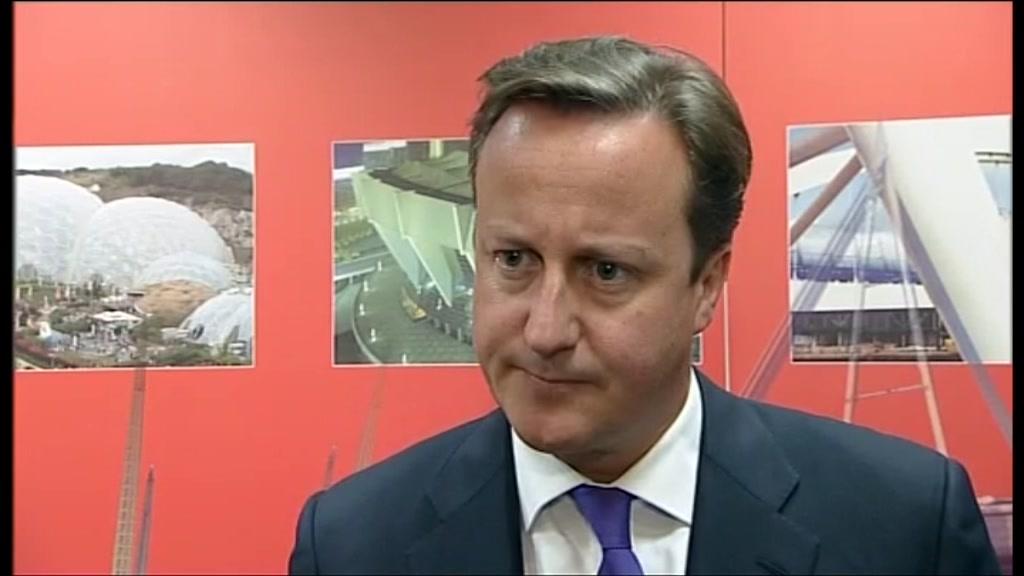EU referendum: Corby, England's 'Little Scotland', votes Leave
- Published
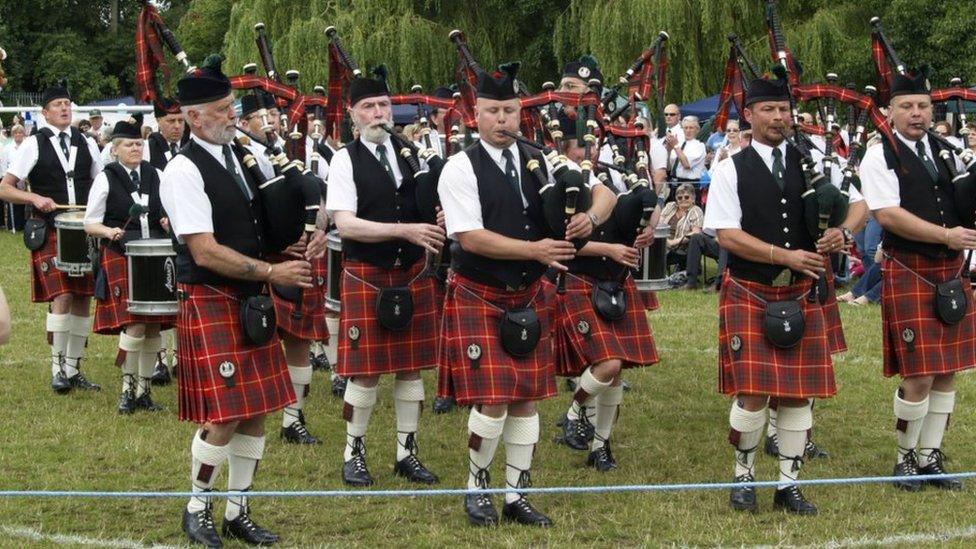
Corby's annual Highland Gathering is a reminder that in the 1970s almost three-quarters of the town was estimated to be of Scottish heritage
Corby has been dubbed England's "Little Scotland" for decades. But after the town's EU Referendum vote went the opposite way to its "parent" nation, does the nickname still fit?
Ever since thousands of Scots moved south to take up jobs at the steelworks in the 1930s, Corby has been known for its tartan army of "expats".
In the mid-1970s, British Steel employment peaked with about 13,000 workers, but its forges closed in 1980 with the loss of about 10,000 jobs and a further 5,000 in support industries.
In 1961, a third of the town's population was born in Scotland and, as more Scots travelled south, it has been estimated about 70% claimed Scottish heritage by the mid-1970s.

EU Referendum voters in Corby said immigration and pressure on public services made them vote Leave
But the Northamptonshire town, which has a population of 65,000, has proved to be very much out of step with Scotland when it comes to support for the European Union.
Scotland voted 62% for the UK to remain in the EU, while in Corby only 36% voted the same way.
Corby resident Rose Coupland, who has Scottish heritage, said: "Foreigners - there are too many of them and we are expected to change the way we live our lives to suit them and it's our country and it annoys me.
"It used to be Scottish, now it's all Eastern European.
"I see myself as English because I've lived here all my life, but they [Scotland] want independence anyway and so they shouldn't have a right to have a say over us in any case."
Another woman, who did not want to be named, said: "Doctors in Corby are overwhelmed. You have to wait months for an appointment sometimes, so hopefully that will change."
Corby's Conservative MP and Leave campaigner Tom Pursglove said: "The message from people is they want control over immigration, a fairer immigration system, take back control of the significant sums of money we send to Brussels, be able to trade freely with developing countries - and they want their democracy back."
Corby still holds a Highland Gathering every summer which can attract up to 7,000 to Charter Field if the weather is good.
Two years ago a poll at the event preceding the Scottish independence referendum saw 75% vote to remain in the UK, according to Mr Pursglove.
The actual referendum saw Scottish residents vote with a 55% majority to remain in the UK.
Nicola Sturgeon, the Scottish National Party's First Minister in Scotland, has already said a second independence referendum is "highly likely" after the country voted to Remain in the EU, in contrast to England.

Why did Corby vote Leave in the EU Referendum?
BBC Northamptonshire reporter Elinor Cross spoke to dozens of people in the town centre.
"The number of Eastern Europeans in the town was noticeable and a third of the people I approached said they couldn't speak English and were not originally from Corby.
"Of those who did speak to me the overwhelming majority of them voted out - saying immigration and pressure on the NHS and school places were the reasons why.
"There was a feeling of surprise the vote went the way it did, but many of them were very pleased.
"They wanted to see fewer people moving to the town."

Mr Pursglove said: "Corby Scots are very clear they want the UK to stay together, but don't want to be part of the European Union.
"I find it quite bizarre that the Scottish National Party are quite happy to sacrifice their democracy to Brussels, an organisation that is far more distant than Westminster.
"It would require a Westminster government to allow another Scottish independence referendum and I don't believe there to be a mandate for that.
"It's important to recognise that Scots voted overwhelmingly to keep the United Kingdom together only two years ago and we should respect that judgement."
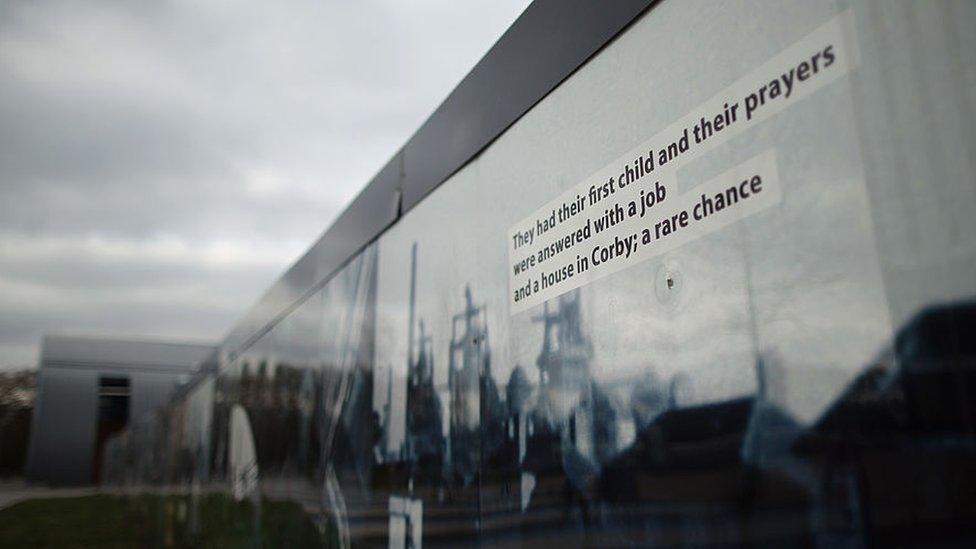
A mural highlights mass migration from Scotland to Corby which ended when British Steel closed in 1980
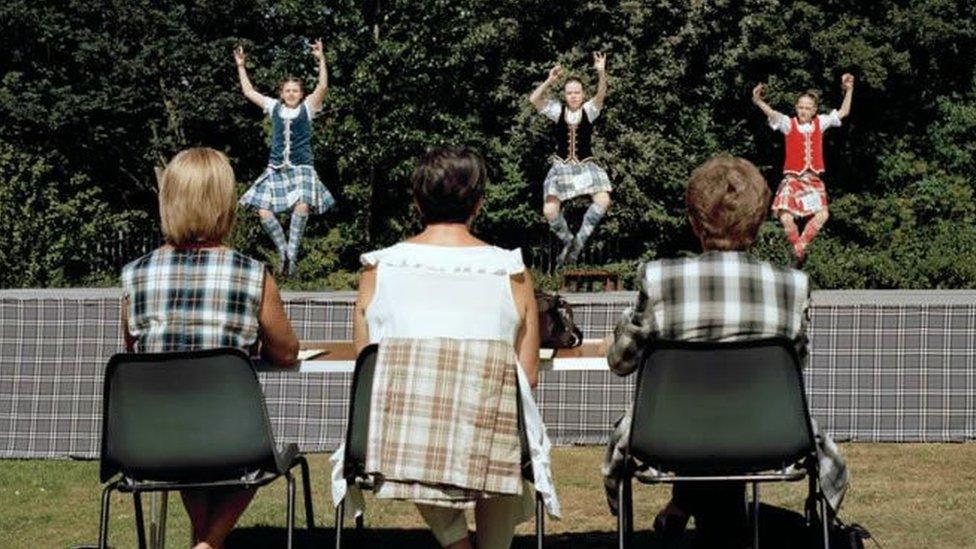
This year's Corby Highland Gathering takes place on 10 July
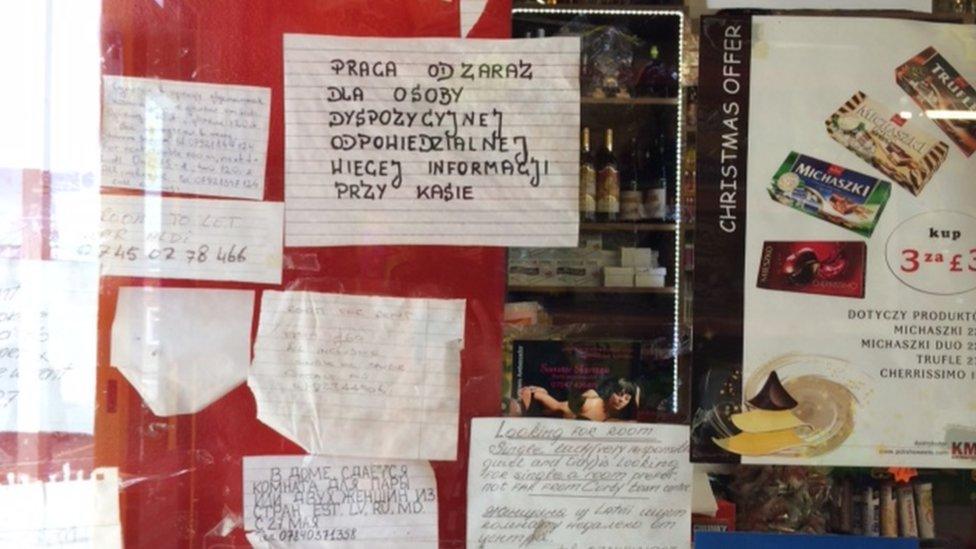
Recent migration to Corby has been from Eastern Europe - which has led to a growth in shops selling Polish goods
Labour Corby borough councillor Peter McEwan, who moved south from Greenock in 1977, said: "What happens in Scotland has no bearing on Corby at all these days.
"I voted to stay in the EU, and there has been scaremongering, but until I speak to more people I don't think it would be fair to comment on why they voted the other way.
"It's baffling me why Scotland would not want to be ruled by the United Kingdom, but be quite happy to run by people in Brussels.
"People originally came down in the 1930s, so we're actually talking a fourth or fifth generation of kids born in Corby who are English.
"In Corby, even though we've got a contingency of Scottish, we've got Poles, Latvians, Russians, Irish, Welsh - we're international now."

Councillors Peter McEwan and William Colquhoun, pictured at Corby's Grampian Club, both arrived from Scotland in 1977
Another Labour councillor William Colquhoun, who arrived from Glasgow to work in the steel industry in 1977, said: "I have great faith in the town, which integrates and welcomes incomers and recognises that they add quality and value.
"Little Scotland is an outmoded idea - it's a multicultural town.
"Personally, I think another independence referendum in Scotland is inevitable and if it was held tomorrow they would vote in favour to maintain the European connection.
"We are potentially talking about the break-up of the union, but I think it can work - it's sad, but society changes and the world changes."
All that remains of the steel sector in Corby is Tata's manufacturing plant, which employs more than 500 people.
Its future is yet to be decided, but the era of Scottish migration is long gone and the feeling among those of Scottish heritage is that the "Little Scotland" nickname has followed.
- Published24 June 2016
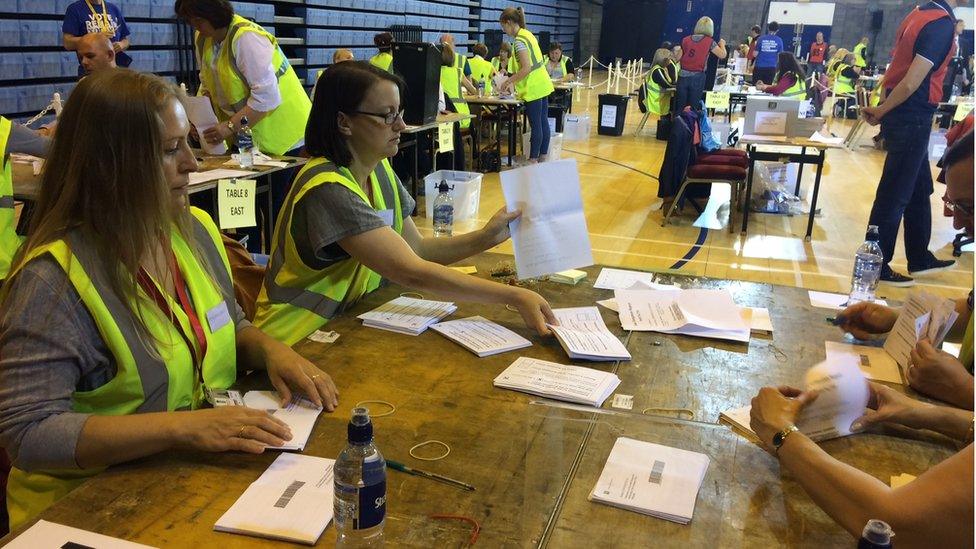
- Published24 June 2016
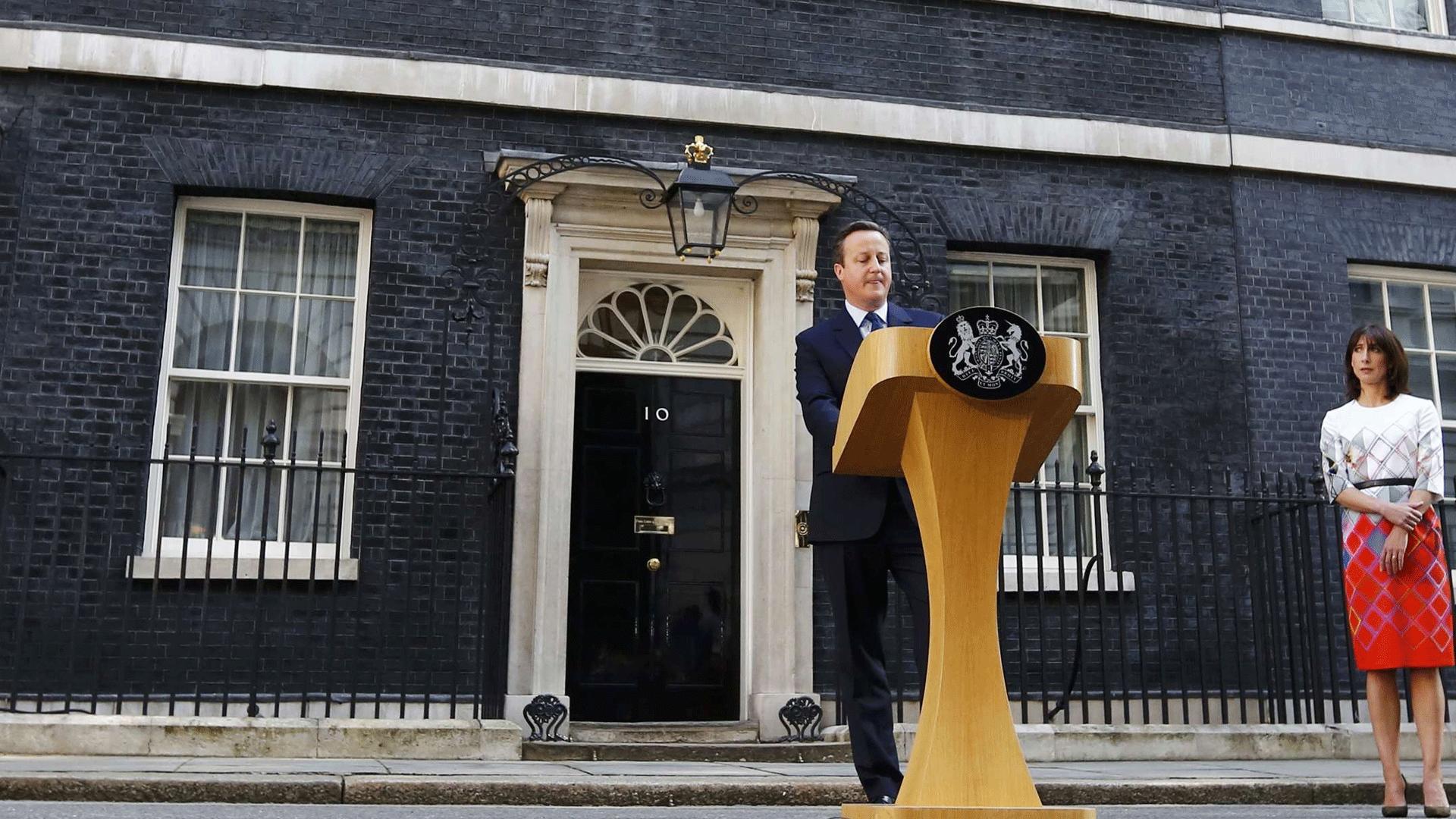
- Published24 June 2016
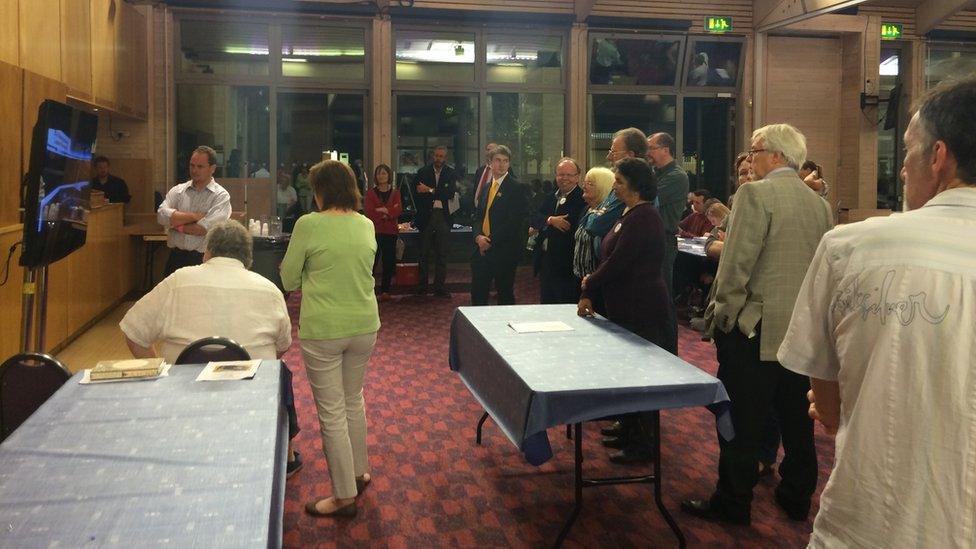
- Published24 June 2016
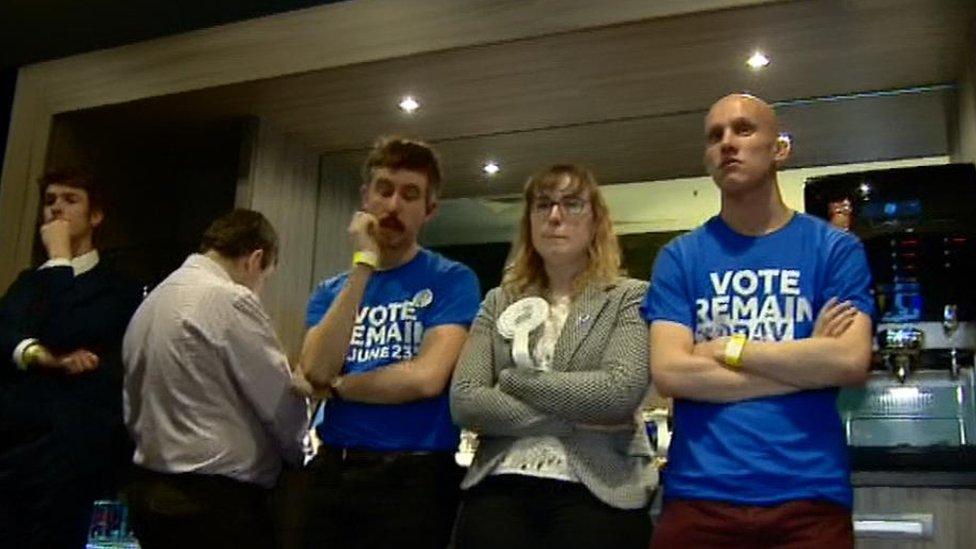
- Published24 June 2016
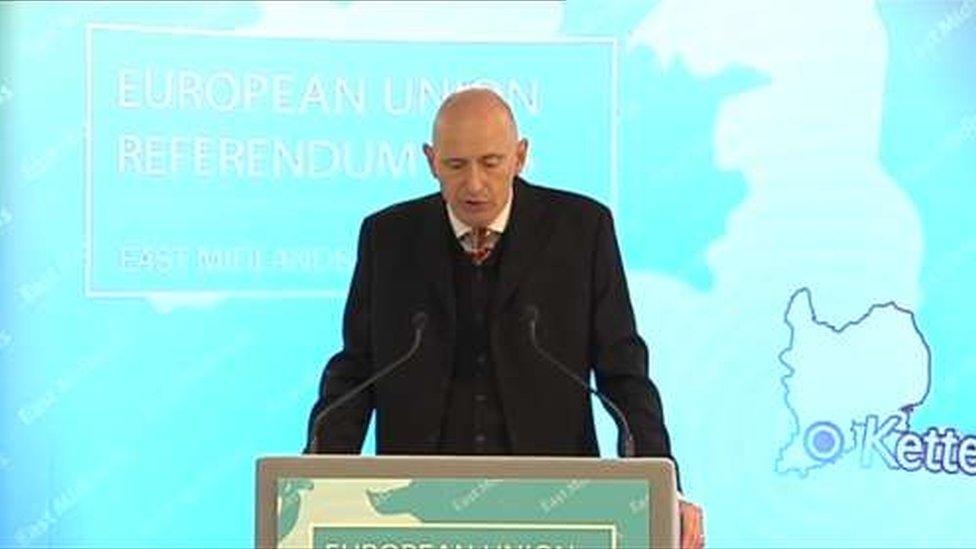
- Published9 May 2016
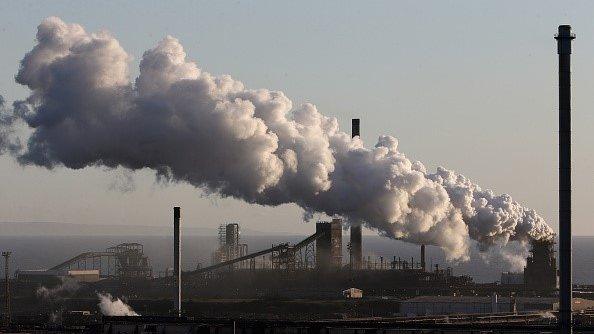
- Published6 October 2015
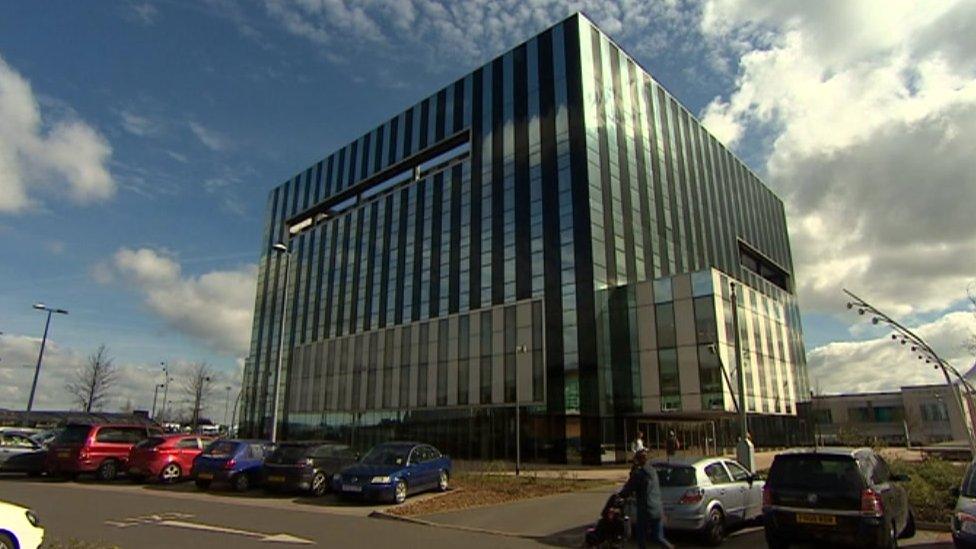
- Published11 July 2014
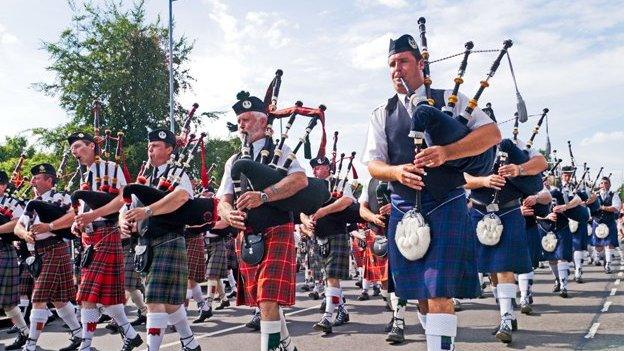
- Published21 September 2012
